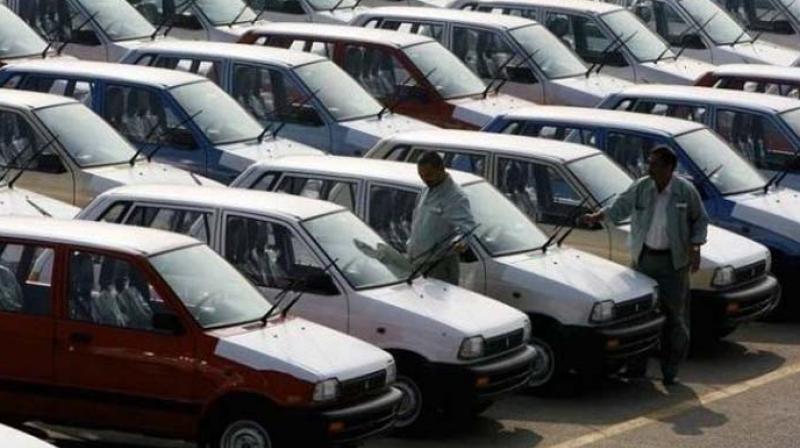Auto sector in a mess, govt needs to step in

Though the slowdown in the auto sector reflects the general slowdown in the overall economy that started with demonetisation and the flawed implementation of the Goods and Services Tax, the major concern is the loss of over 2.3 lakh jobs, with a further loss of 10 lakh jobs hovering over the horizon. There can be a cascading impact on ancillary and other industries as the Rs 8.3 lakh crore auto industry accounts for 22-25 per cent of GDP.
It’s hoped the government will look into this crisis, said to be the worst in 20 years, as Prime Minister Narendra Modi aims to make India the manufacturing hub of the world. This can’t be done without a healthy auto industry. The loss of jobs on such a scary scale also punches further holes into the PM’s promise of providing 10 million jobs annually in his second term.
It will be interesting to see what solution or incentives finance minister Nirmala Sitharaman offers to give a fillip to the industry. Industry leaders have suggested that a cut in the GST cess may not solve the problem but will provide some relief as the road tax has shot up significantly after the introduction of GST.
Registration fees imposed by various states have also been going up, and could be looked into. The industry gives employment to over 32 million people, and adds `1,80,000 crores to the government’s revenues, so in a way the government will be boosting its coffers by helping the industry, that has been in dire straits in the past 10 months.
These are immediate solutions that can be brought in, but the real problems are long-term. Rural distress, which surfaced after demonetisation that hit the cash economy which distinguishes the rural sector, is one of the key reasons for the slowdown in demand in the auto sector. This distress won’t vaporise overnight.
Uncertainty over the monsoon has also hurt demand. Agricultural wages and wages in other sectors like construction have been going down, so the revival of demand will probably take another year, according to industry experts.
The finance minister could look into giving a push to revive lending to the non-banking finance companies that help in creating demand in different sectors. They provide a significant portion of the personal loans to prospective buyers of items like cars and white goods as banks are still in the process of cleaning up their books.
Ironically, one of the reasons for sales plummeting is that the industry isn’t offering attractive variants. This is because of the game-changing emission control standards that will come into effect next year.
The silver lining in this dreary scenario is the second-hand car market that is giving auto manufacturers sleepless nights. According to one report, four million second-hand cars were bought, against 3.6 million new cars.

